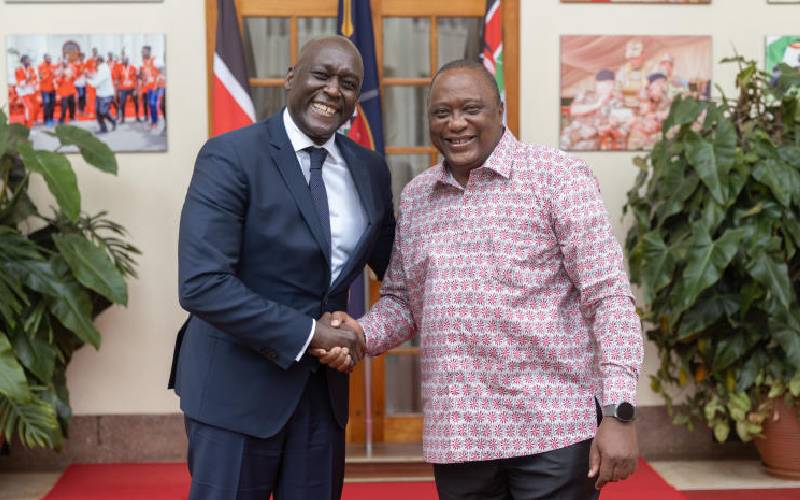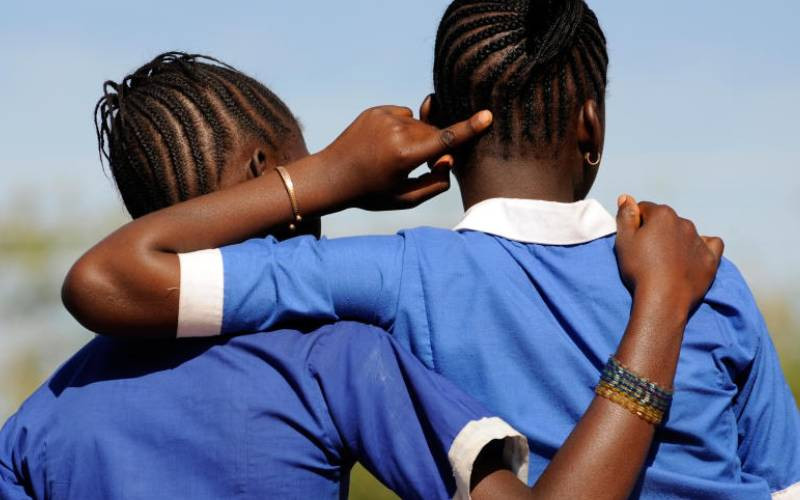
President Uhuru Kenyatta and IFC Managing Director Makhtar Diop shortly after meeting a high-level delegation led by Diop at State House, Nairobi, February 2022. [Courtesy]
The International Finance Corporation (IFC), the private investment arm of the World Bank Group, has promised to help finance small businesses in healthcare in Africa.
In Kenya, Co-operative Bank is one of the beneficiaries of Sh34 billion kitty to help small businesses in Africa purchase medical equipment.
Last week, IFC Managing Director Makhtar Diop met Co-operative Bank’s Gideon Muriuki on the backdrop of the flagship $300 million (Sh34 billion) Africa Medical Equipment Facility.
This is designed to provide risk-sharing facilities to help small businesses access loans and leases.
While in Nairobi, Diop noted that small and medium healthcare businesses in Africa often struggle to access financing to purchase or lease medical equipment. “Proud to see how IFC’s Medical Facility, in partnership with Cooperative Bank of Kenya and others, is changing the status quo. Let’s keep it up!” Diop said in a tweet.
The IFC boss was in Kenya from January 31 to February 4 this year to highlight the institution’s commitment to supporting Kenya's development agenda and the private sector's role in championing a more inclusive recovery from the economic impacts of the Covid-19 pandemic.
The visit by the IFC President was to reinforce existing partnerships and to re-affirm that IFC remains keen to strengthen the partnership and boost existing programmes.
The financing deal that was announced on April 4 saw Co-operative Bank ink deal with medical equipment manufacturer Philips to help healthcare providers acquire medical equipment to strengthen their response to the Covid-19 pandemic.
The loan to smaller healthcare providers ranges from $5,000 to $2 million (Sh540,000 to Sh216 million) to help them lease or purchase equipment.
Besides Co-op Bank, financial entities from Ivory Coast, Rwanda, Senegal, Tanzania, and Uganda also benefitted from the fund.
Currently, smaller healthcare operators across Africa cannot secure bank loans due to their perceived high investment risks, meaning they can’t afford medical equipment, renovations or recruit qualified personnel.
“Many smaller healthcare businesses in Africa don’t have the equipment they need to respond to Covid-19 and deliver other vital services,” said Diop in April.
Mr Muriuki said the pact with IFC and Philips will allow the lender to extend credit to investors in the healthcare sector, who previously have found credit availability a challenge.
“Health expenditure is one of the largest budget items in many households in Kenya. Every support to make it easier for the sector to prosper and benefit our people is welcomed,” said Muriuki.
The facility includes an advisory services programme to help small businesses in the healthcare sector strengthen their medical equipment procurement processes, financial management competencies and business planning.
Last month, the lender received a Sh1 billion loan from a German financier eco.Business Fund for lending to investors in agriculture including those in coffee tea and horticulture.
 The Standard Group Plc is a multi-media organization with investments in media platforms spanning newspaper print
operations, television, radio broadcasting, digital and online services. The Standard Group is recognized as a
leading multi-media house in Kenya with a key influence in matters of national and international interest.
The Standard Group Plc is a multi-media organization with investments in media platforms spanning newspaper print
operations, television, radio broadcasting, digital and online services. The Standard Group is recognized as a
leading multi-media house in Kenya with a key influence in matters of national and international interest.



